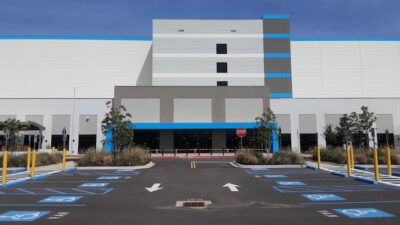Even as the market cools, there’s still plenty of opportunities for deal-making in the AE space.

As we approach the end of the first quarter, the M&A market for AE firms continues to be robust. While overall activity may not be on the same scorching pace it was in mid-2022 and cracks are beginning to appear in the larger economy (last week’s Silicon Valley Bank implosion being the most recent example), there’s still plenty of deal-making to be had and we expect the field of would-be buyers to remain a crowded one in 2023. Undoubtedly, they’re already knocking on every door out there, so if you intend to be the one to close a deal, here are a half-dozen insights that will help you in your quest:
1. Strategic and cultural fit triumphs overall—at least out of the gate.
The starting point for sellers these days is fit. Recognize that high-performing firms, or those in high-growth markets and sectors, have buyers lining up around the corner as if there was a Black Friday door-buster—and they didn’t even have to offer any discounts to pull off the feat. By now, most attractive firms believe they’ve heard it all and been offered it all. So, ditch the buyer mindset, and start thinking like a business partner. Convey what makes you different aside from the check you’re willing to write. Does your firm embody a similar culture, core values, and similar aspirations for what the combined company could look like? Do you share a similar purpose in the world? Do you invest in your people first and foremost? Listen more than you talk in early discussions for what compelling parallels can be drawn between the two organizations.
2. Sure, sellers may have heard it all and been offered it all, but they’re still not above cash.
I know we just talked about fit coming first, but assuming there is one, sellers are still as interested in cash as anyone else, especially retiring shareholders who need to be cashed out as a part of the deal. Cash can range from 60%-100% of the total purchase price, so be as certain as possible about future growth projections if your deal is going to be particularly cash-heavy.
3. Borrowing money from your new partner might make sense.
Since the vast majority of deals aren’t 100% cash, you’re going to have to fund the balance of the transaction some other way. Debt can be used, but rising interest rates have pinched those buyers that rely on it for financing their deals—and they’re feeling it. One alternative to debt is a seller note. Just make sure the interest rate on the note is relatively close to market interest rates and have a reasonable repayment period. The cost of capital from a traditional lender in some cases is going to be SOFR (Secured Overnight Financing Rate) + 350 basis points (6.0%-7.5%). Wouldn’t it be nice to borrow from your new partner at 5.0%-6.0%? I think so (it’s better than any CD they are putting their money into post-close).
4. Your stock can be used to your advantage—if you can let some go.
I understand that equity is precious and not every buyer wants to give it up easily; but share the wealth-creation opportunity with your new partner so your interests are aligned with the seller indefinitely. Today, there are many more commonly used tax and legal structures, such as an F-Reorganization, that provide substantial benefits. The seller, for example, is able to roll over their equity on a tax-deferred basis, creating more dollars for them to invest in the combined company, while the buyer often gets a step-up in basis on the transaction and has preferred tax treatment for the life of the investment. Both parties can win.
5. Earn-outs can help you hedge your bet.
An earn-out is essentially a purchase price that can be earned by the seller. It’s based on the seller’s ability to meet future performance obligations, such as net revenue or EBITDA metrics determined by the buyer, which often closely resemble the firm’s recent performance plus a modest growth rate. Now, with the IIJA providing up to $1.2 trillion in available spending on improving the nation’s infrastructure, if you are acquiring a firm that even remotely touches any part of infrastructure—especially transportation, water/wastewater, or power and energy—then an earn-out may not fly. On the other hand, if the seller doesn’t serve the infrastructure markets, you might well be justified in questioning whether their current earning streams are, in fact, the “new normal,” and, therefore, a modest earn-out of, say, 10% of the purchase price might be a good way to protect you from overpaying while helping your seller believe they are getting a fair price.
6. Employment agreements can calm nerves.
An acquisition can rattle cages and create concern in the minds of the seller’s employees and key leaders. Questions like “Are they going to keep me around?” and “How are my clients going to feel about this?” are common. Despite your verbal reassurances, the jitters might cause some of the seller’s employees to consider looking for new jobs. To protect against this risk, consider offering employment agreements to key staff. These agreements combine assurances that sweeten the pot with restrictions that prevent hasty, string-free exits. These restrictions often include a promise from the employees to not compete (potential legislation regarding non-competes notwithstanding) or solicit any employees or clients should they choose to find another job. This arrangement has to benefit everyone involved, so look at different ways to give these key employees the opportunity to become material beneficiaries of the success of the combined business through profits interest units or stock grants. The more flexible you can be, the better chance you have of stemming key employee departures.
So keep it simple, keep it fair, and always put your best foot forward. The best buyers, defined as those who are most successful in finding great partners to grow the business, embody their brand and culture, and focus on becoming long-term business partners from the first conversation on.
Brendon Cussio is the host of the 500 Club panel at Morrissey Goodale’s Southeast M&A, Strategy, and Innovation Symposium in Miami later this month. The 500 Club consists of deal-making experts in the AE industry who, collectively, have closed more than 500 transactions. If you were unable to secure a spot for this sold-out event, make sure to join us in Las Vegas in June for our Western States M&A, Strategy, and Innovation Symposium by registering here.



